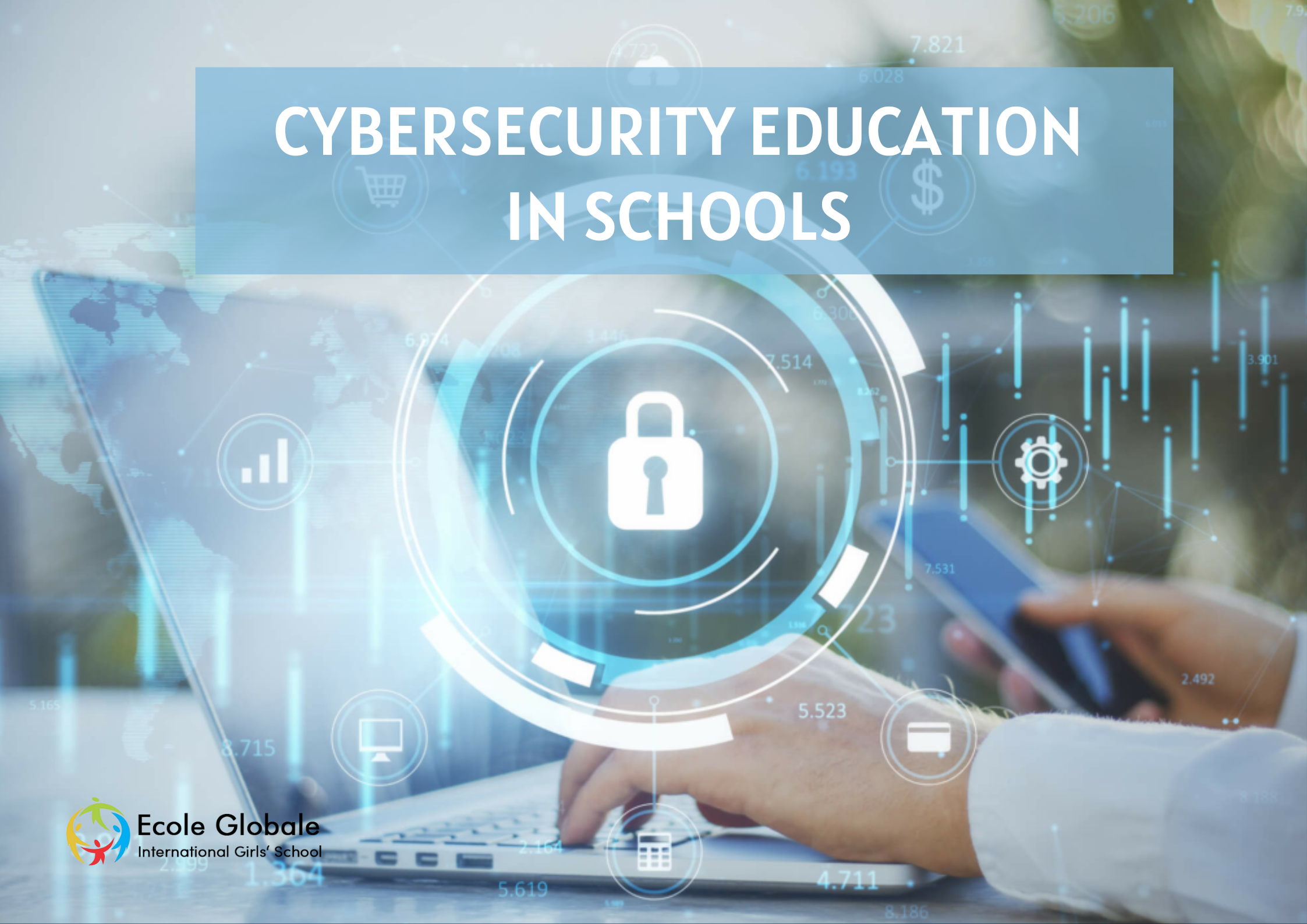In an era dominated by technology, where connectivity and digital interactions are integral to daily life, the importance of cybersecurity education cannot be overstated. The rise of cyber threats poses risks to individuals, organizations, and governments, making it essential to prioritize cybersecurity education in schools.
Ecole Globale, a renowned institution committed to holistic education, recognizes the significance of cybersecurity education and has adopted a proactive approach to equip students with the knowledge and skills needed for a secure digital future. This article delves into the importance of cybersecurity education and outlines Ecole Globale’s approach to preparing students to navigate the complexities of the digital landscape.
Understanding the Cybersecurity Landscape
The term cybersecurity encompasses a broad range of practices, technologies, and measures designed to protect digital systems, networks, and sensitive information from cyber threats. These threats include malicious activities such as hacking, phishing, ransomware attacks, and unauthorized access to data. As technology continues to advance, so do the tactics employed by cybercriminals, necessitating a proactive and informed approach to cybersecurity.
The Need for Cybersecurity Education in Schools
![]()
Cybersecurity education in schools is not merely an option; it is a fundamental necessity. The benefits of imparting cybersecurity knowledge to students are extensive:
Risk Mitigation:
Education empowers students to recognize and mitigate cyber risks, reducing the likelihood of falling victim to cyber threats.
Digital Citizenship:
Cybersecurity education fosters a sense of digital citizenship, promoting responsible and ethical behavior online.
Career Preparedness:
In a world where digital literacy is a prerequisite, cybersecurity education prepares students for careers in a technology-driven landscape.
Personal Security:
Students learn to protect their personal information, online identity, and privacy in an interconnected digital environment.
Ecole Globale’s Holistic Approach to Cybersecurity Education

Ecole Globale adopts a holistic approach to education, recognizing that cybersecurity is not just an IT issue but an essential life skill. Here’s how Ecole Globale approaches cybersecurity education:
Incorporating Cybersecurity into the Curriculum:
Cybersecurity education is seamlessly integrated into Ecole Globale’s curriculum, ensuring that students encounter relevant topics across various subjects.
Subjects like computer science, information technology, and even elements of mathematics and social studies incorporate cybersecurity concepts.
Practical Hands-On Learning:
Recognizing that theoretical knowledge alone is insufficient, Ecole Globale emphasizes practical, hands-on learning experiences.
Students engage in simulated scenarios, learning how to identify and respond to cybersecurity threats in a controlled environment.
Guest Lectures and Industry Experts:
Ecole Globale brings in cybersecurity experts and industry professionals to conduct guest lectures and workshops.
Exposure to real-world experiences and insights from experts enriches students’ understanding of cybersecurity challenges and solutions.
Ethical Hacking and Cybersecurity Competitions:
To encourage a proactive approach, Ecole Globale introduces students to the ethical side of hacking through controlled and supervised activities.
Participation in cybersecurity competitions fosters a spirit of healthy competition while honing practical cybersecurity skills.
Promoting Responsible Digital Behavior:
Beyond technical skills, Ecole Globale emphasizes responsible digital behavior. Students learn about the consequences of cyberbullying, the importance of respecting online privacy, and the ethics of digital communication.
Parental Involvement and Workshops:
Ecole Globale recognizes the role parents play in reinforcing cybersecurity principles at home.
The institution conducts workshops for parents, educating them about cybersecurity best practices and how to create a secure digital environment for their children.
The Role of Teachers in Cybersecurity Education
Ecole Globale places a significant emphasis on the role of educators in cybersecurity education. Teachers act as mentors and guides, imparting not only technical knowledge but also instilling a cybersecurity mindset. The institution invests in teacher training programs to ensure that educators are well-equipped to navigate the ever-evolving landscape of cybersecurity and effectively communicate its importance to students.
The Integration of Technology in Cybersecurity Education

Ecole Globale leverages technology as an enabler for cybersecurity education. This includes the use of:
Simulations and Virtual Labs:
Students engage in realistic simulations and virtual labs that replicate cybersecurity scenarios, allowing them to apply theoretical knowledge in a practical setting.
Educational Apps and Platforms:
Interactive educational apps and platforms provide students with gamified experiences, making cybersecurity learning engaging and enjoyable.
Online Resources and Learning Portals:
Ecole Globale ensures that students have access to reputable online resources and learning portals, keeping them informed about the latest developments in cybersecurity.
Assessing Cybersecurity Competencies
To gauge the effectiveness of cybersecurity education, Ecole Globale incorporates assessments that evaluate students’ cybersecurity competencies. This may include practical assessments, scenario-based evaluations, and written examinations that cover various aspects of cybersecurity knowledge and skills.
Collaboration with Cybersecurity Organizations
Ecole Globale recognizes the value of collaboration with cybersecurity organizations, both in the academic and corporate sectors. Partnerships with cybersecurity firms, industry associations, and educational organizations enable Ecole Globale to stay updated on the latest cybersecurity trends, access resources, and provide students with exposure to real-world cybersecurity practices.
Overcoming Challenges in Cybersecurity Education

While Ecole Globale is proactive in addressing the challenges associated with cybersecurity education, it acknowledges that certain hurdles exist:
Resource Constraints:
Adequate resources, including trained educators and technology infrastructure, are essential for effective cybersecurity education.
Rapid Technological Changes:
The fast-paced nature of technological advancements requires continuous updates to the curriculum and teaching methodologies.
Student Engagement:
Sustaining student interest in cybersecurity topics may be challenging. Ecole Globale employs innovative and interactive teaching methods to address this concern.
Conclusion: Nurturing Cyber-Savvy Global Citizens
Ecole Globale’s approach to cybersecurity education reflects a commitment to nurturing cyber-savvy global citizens. By seamlessly integrating cybersecurity principles into the curriculum, providing hands-on experiences, and fostering a culture of responsible digital citizenship, Ecole Globale equips students with the knowledge and skills needed to navigate the digital world securely.
The institution’s holistic approach, encompassing practical learning, parental involvement, and collaboration with industry experts, ensures that students graduate not only academically prepared but also cyber-resilient. As Ecole Globale continues to evolve its cybersecurity education initiatives, it stands as a beacon for educational institutions seeking to prepare students for the challenges and opportunities of the digital age.









